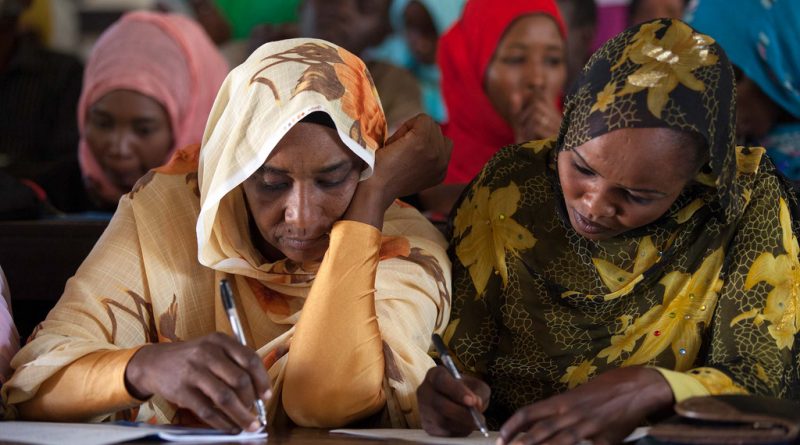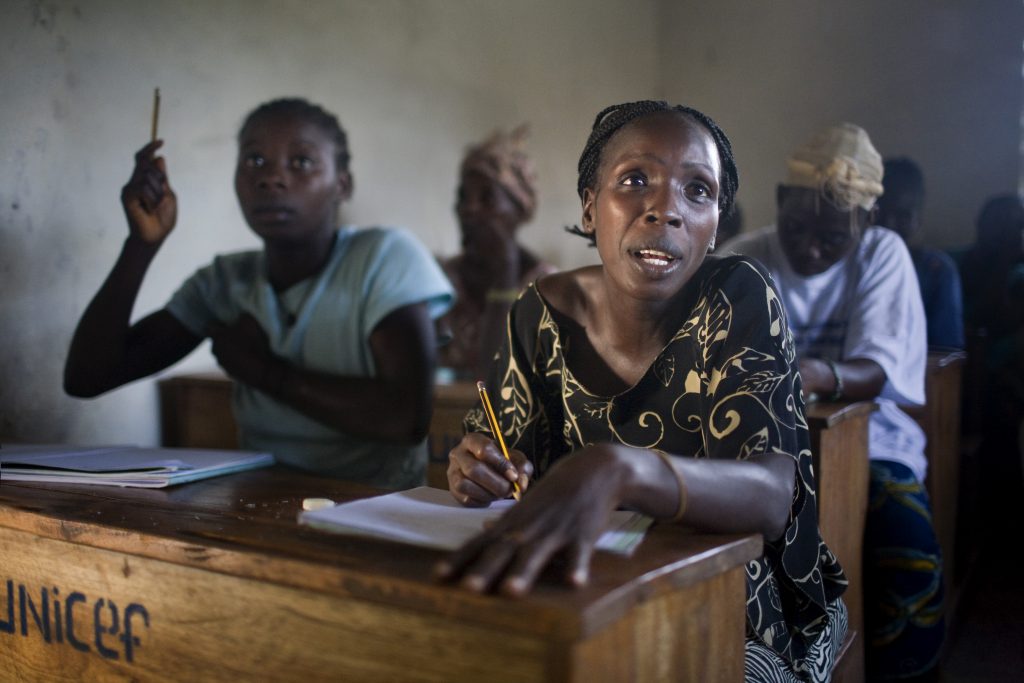Despite the fact that HIV is no longer a death sentence if individuals living with it can take their treatments religiously, yet, women and girls living with it still pass through hell in the society. However, findings reveal that intolerance and ignorance are the major reasons behind their victimizations, Juliet Umeh writes.
Not only was her name ringing bell in her street in Lagos, as an HIV positive person, much more painful to Rose Martins, a 36-year-old-lady, was the eviction and inhuman treatments she suffered in the hands of her landlady and close family members.
For one week, Martins said she was battling with ‘malaria,’ taking across the counter drugs, but her condition never improved. She was later advised by a friend to go for a test. After the test, she was asked to come the next day for the result. But Ms Martins suddenly received a call from the doctor who attended to her, requesting that she sends someone close to her to pick her result. She innocently informed a friend who is a nurse, who obliged to pick up the result. Unfortunately, that was her undoing as the nurse ended up exposing her status to the whole street.

Speaking to Vanguard, heavy hearted Martins explained, “When I newly discovered my status, I faced a lot of stigma, to the extent that I was evicted out of my house. I never knew I was positive until that day the doctor called me and asked me to call someone that is very close to me. I called a nurse who was close to me. They disclosed my status to her, she did not tell me, but rather went to the street and began to tell everybody about my status.
Oblivious of what was going on, “I noticed that people started avoiding me the time I discovered that I am HIV positive. She went as far as telling my landlady and advised her to give me a quit notice which she did. For two years, I didn’t have a house. I was squatting from one place to another. I could not get help anywhere.
Women make input in 2019 Kano budget
“When the stigma and discrimination continued, I decided to kill myself. I cut my hair, gave out all my clothes. I withdraw all the money in my account because I was told that this is a killer disease that I cannot live. I decided that there is no point leaving those things since I’m about to die. So I had to leave the street.
“It was after I left the street that I started getting myself back. I visited another hospital where I got respite. On my visit to Island hospital, I met a foreign doctor who encouraged and enlightened me. She told me that with treatment, I will still live a normal life. The doctor even showed me another infected person who looked very health,” Martins told Vanguard.
Evelyn Nwokeji’s story is more pathetic as she did not only lost her marriage; she lost her shop, at Iyana Oba, her only source of survival. She was not only ostracised in the market but her things were thrown out of the community.
Nwokeji narrates her story: “I got infected after having a blood transfusion which my husband was aware of. But, he abandoned me after the birth of our child. He told me to take care of our baby. I then asked him, does that mean I am going to die; he said he doesn’t know that it is not his concern. Till now, he is yet to come back.
“It was when some non-government organization people, NGO, came and told me that there is life if I can be taking my drugs that I came back to life. So, what I do now is to sell some petty things along the road to survive with my daughter. Thank God, the girl just finished her West Africa School Certificate examination, WASC, and she is not infected,” Nwokeji said.
Similarly, Mrs. Uche Ezeh also lost her first marriage after the discovery of her status. Presently, she is married to another man who accepted her and her status.
“When I was with my ex-husband, there was so much intimidation and at the end of the day, we just had to separate. At first, I wasn’t willing to separate for the fear of discrimination and stigmatization particularly from the society, family and religious group.
Apart from abuse from their spouses, some are scorned by friends, extended family members and the larger community. Like the case of Evelyn Nwokeji, some have been thrown out of their houses, while some have lost their jobs.
A research conducted at the University of Nigeria Nsukka, Enugu, in the South Eastern part of Nigeria by Hyginus Ezegwui, Chukwuemeka Iyike and Lawrence Ikeako, in 2015 shows the following pattern of violence against HIV positive women: Threat of being hurt 16.4 percent, deprivation of financial support 15.5 percent, denial of communication 15.5 percent, verbal abuse 13.6 percent, sexual violence 12.7 percent, physical violence 10.9 percent and denial of sex 10.9 percent.
Also, in the Northern Nigeria, research conducted in Aminu Kano Teaching Hospital and Bayero University, Kano, by Zubairu Iliyasu1, Isa Abubakar, Musa Babashani and Hadiza Galadanci at the department of Community Medicine; Department of Medicine; Department of Obstetrics & Gynaecology, Aminu Kano shows that 67.1percent of the infected women had disclosed their status to their partners; and 22.1percent had experienced domestic violence. Specifically, 30.0 percent experienced physical violence (slapping, kicking and punching), 59.3 percent reported verbal violence (insults, threats) and 10.7 percent endured emotional violence.
In South West, research conducted at Obafemi Awolowo University, Ile Ife; Ladoke Akintola University of Technology Osogbo and Osun State University Osogbo, Osun in 2015 by Samuel Olowookere, Olufunmilayo Fawole, Daniel Adekanle, Najemdeen Adeleke and Emmanuel Abioye-Kutey showed the following pattern: Three hundred sixty respondents were interviewed using a structured questionnaire. Those who disclosed their status to their partner are 24 percent; while 23.6 percent had experienced violence. Physical violence: 17 percent, emotional violence 21 percent, and sexual violence 2 percent.
Speaking to a Primary Health Gynaecologist at the Nigeria Institute of Medical Research, NIMR, Dr Oliver Ezechi, he said people exhibiting violent behaviour do that out of ignorance because HIV medicine has changed.
Ezechi who is also a public health physician explained that discordant couple can live a very rewarding and fruitful life without the other partner contracting the HIV.
“There is what is called pre-exposure prophylaxis; there is also treatment and prevention. If you have two couple, one is positive and the other is negative, that person who is positive is treated and that is treatment and prevention. Once that person achieves undetected viral load, he/she can no longer infect the other negative person.
“But while that person is taking the drug, we start the negative person on pre exposure prophylaxis and once that person is on prophylaxes, that person is on double protection, they can also have negative children.
“I am a primary health Gynaecologist I can’t even count the number of people who have passed through me, 10 years, five years down the line they are still negative and they’ve had their babies. So people need to come out and enquire for knowledge and people will advice them.
In the view of a public health practitioner who is also a resident doctor in public health department Ikeja Local Government clinic, Lagos, Dr Anifowose Aderinsola, people who have been confirmed to be living with HIV should know that it is not the end of life.
“Instead of engaging in domestic violence, they should use their medications, they can still live optimally once they adhere to their prescriptions,” she advised. She called for increased awareness, saying that they should learn to accept them and not stigmatize them because it could have been from anything.
This story/investigation was made possible with support from Code for Nigeria’s WanaData programme

